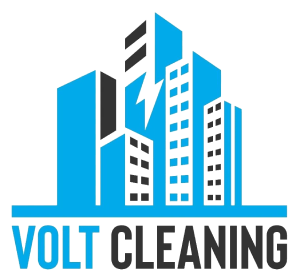Medical Cleaning
Volt Cleaning delivers professional hospital-grade medical cleaning in Austin-disinfecting surfaces, exam rooms, labs with trained teams.

Why Medical Facilities Need Specialized Cleaning, and What to Expect from a Professional Provide
With more hospitals and medical offices outsourcing their cleaning services, the healthcare industry is seeing a growing number of providers offering specialized medical cleaning. But not all cleaning companies are equipped for the unique demands of a healthcare environment.
Medical cleaning goes far beyond routine janitorial work. It requires a deep understanding of infection control, sanitation protocols, regulatory compliance, and the safe handling of biohazards. Whether you’re managing a hospital, clinic, or private practice, working with a cleaning partner that’s trained in healthcare-specific procedures helps protect your patients, staff, and reputation.
Medical Cleaning and Why Staff Safety Should Matter to You
When it comes to cleaning medical environments, safety is a top priority, not just for your patients and visitors, but also for the cleaning professionals working in your facility. Unlike standard office spaces, medical settings involve direct exposure to harmful pathogens, bodily fluids, and high-touch surfaces that can carry infectious diseases.
That’s why it’s essential to hire a cleaning provider that prioritizes staff safety and proper training. Professional cleaners in healthcare environments must be equipped with the right knowledge, techniques, and Personal Protective Equipment (PPE)—like nitrile or latex gloves—to protect themselves and safely manage biohazard risks.
(737) 292-2111
Why Medical Facilities Require Specialized Cleaning Knowledge
When it comes to cleaning healthcare environments, preferences aren’t enough strict regulations must be followed to ensure patient and staff safety. Unlike general office spaces, medical facilities must meet rigorous cleaning standards set by national health and safety organizations.
Professional medical cleaning providers understand and follow specific protocols based on guidance from trusted authorities like the Centers for Disease Control (CDC) and the Association of periOperative Registered Nurses (AORN). These guidelines are designed to prevent the spread of infection and ensure that every area from exam rooms to surgical suites is properly sanitized.

Why Patient Privacy Matters When Hiring a Medical Cleaning Service
In medical environments, cleanliness is critical but so is confidentiality. Patient privacy is a top priority, and any cleaning service working in your facility should understand that. While contract cleaners may not be legally bound by HIPAA, most healthcare providers expect them to follow strict privacy protocols to help protect sensitive information.
As a medical provider, you may also prefer to limit unsupervised access to certain areas ensuring that only trusted, well-trained cleaners are allowed near patient records, treatment rooms, or sensitive equipment.
When evaluating a cleaning company, be sure to ask about their understanding of patient privacy, staff protocols, and how they align with HIPAA-compliant operations. The right partner will prioritize both sanitation and discretion, giving you peace of mind in every aspect of their service.
(737) 292-2111

Why Proper Training Matters in Medical Cleaning
Cleaning a medical facility isn’t just about making a space look neat, it’s about protecting the health and safety of your patients and staff. Unlike general office or commercial cleaning, medical cleaning requires intensive protocols due to the high-risk environment.
Patients in hospitals and clinics often have weakened immune systems, making them more vulnerable to infections. That’s why it’s crucial to work with cleaning technicians who are specifically trained to handle medical-grade sanitation and disinfection. A single oversight like improper use of disinfectants or missed high-touch surfaces—can lead to the spread of harmful pathogens.
Why Trust and Accountability Matter in Medical Cleaning Services
In healthcare facilities, the risk of theft carries far more serious consequences than in many other environments. Patients in hospitals, elderly residents in nursing homes, and even visiting families are often in vulnerable states, making them easy targets for theft of small, personal items like jewelry, wallets, or credit cards.
Unfortunately, even larger equipment and inventory aren’t immune. For example, one VA Hospital in Indiana reported over $1 million in missing assets annually, much of which was linked to internal theft by staff or outside contractors.
That’s why it’s essential to work with a cleaning company that performs thorough background checks, trains its staff in ethics and accountability, and enforces strict access controls when working in sensitive areas. A professional provider understands the high level of trust required in medical environments and takes proactive steps to protect your patients, staff, and assets.
When choosing a cleaning service for your healthcare facility, look for more than just experience—look for integrity, transparency, and a proven commitment to safety and security.

